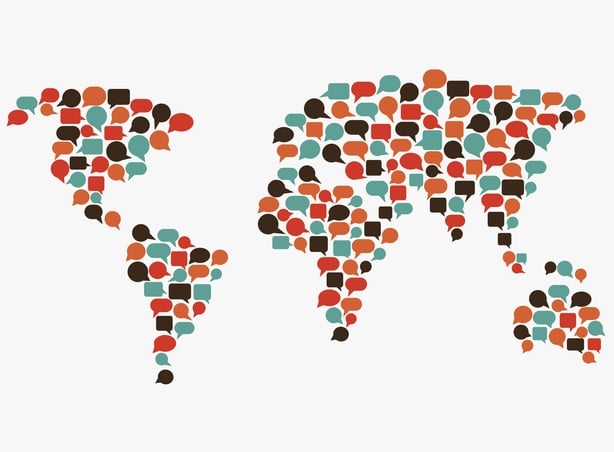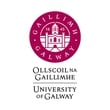Opinion: 13 percent of the Irish population are now multilingual which means implications and challenges for Irish society and culture
Ireland’s multilingualism is a new and developing phenomenon that has received little institutional and public attention. It is remarkable how dramatically the linguistic landscape has changed in the country over the last 20 years. According to the 2016 Census, there are presently 612,018 people in Ireland, or 13 percent of the overall population, who are multilingual, speaking a language other than Irish or English at home.
There are 72 different languages listed and each of these languages has at least 500 speakers living in Ireland. The census includes 135,895 Polish speakers, 54,948 French speakers, 36,683 Romanian speakers, 35,362 Lithuanian speakers, 32,405 Spanish speakers, 28,331 German speakers, 21,707 Russian speakers, 20,833 Portuguese speakers, 17,584 Chinese speakers, 16,072 Arabic speakers and 14,505 Italian speakers. These figures mean that three children in every classroom, one person in every small business and eight people who travel on a bus every day nationally speak a language other than English or Irish at home on a daily basis.
These linguistic changes give rise to many questions. How does Ireland value multilingualism? Are migrants supported in their language needs? How does Irish society deal with hybrid identities and linguistic diversity? How often do we hear and listen to these new voices?

Along with my colleague Dr Andrea Ciribuco at NUI Galway and the Immigrant Council of Ireland, I have been researching Ireland’s changing linguistic landscape and our findings are published in the Language and Migration in Ireland report.
This report looks at the implications of linguistic diversity for Ireland and questions whether Irish policies for language teaching, interpreting and integration take account of Ireland’s growing multilingualism. The research focused not just on how migrants interact linguistically with their new environment, but also looked at the creative output of migrant artists and writers in a new language.
Various areas of concern emerged: many migrants have had negative experiences with Irish institutions based on a lack of linguistic and cultural understanding. The interpreting services provided by the Irish state are haphazard both in terms of provision and quality, leaving migrants in a very vulnerable position. Based on our research, we recommend that interpreting services in Ireland be professionalised, tested and monitored.
Three children in every classroom, one person in every small business and eight people who travel on a bus speak a language other than English or Irish at home daily
There is also a pressing need to provide accessible English language classes for all levels and in all educational contexts. It is concerning, for example, that the Department of Education and Skills does not know how much time and resources are put into the teaching of English in schools. These provisions need to be monitored and revised based on the requirements of the children enrolled in the schools. The presence of multilingual children in every classroom means that English-language supports are crucial for successful learning outcomes and integration.
One of the central recommendations of the report is that multilingualism should be viewed as an asset to Ireland and that the use of more than one language should always be encouraged. In this regard it is important to support "heritage" languages so that the children of migrants do not lose their multilingual abilities. It is crucial that Irish-born children can access the heritage and culture of their parents and grandparents. Learning English should not be at the expense of other languages.
Last month, the Department of Education and Skills launched its Strategy for Foreign Languages in Education (Languages Connect). A long overdue and welcome document, it correctly emphasises the importance of supporting the teaching of a multiplicity of languages in Ireland.

Brexit will result in a changing linguistic reality for Ireland and it will be of huge benefit to the country if we are able build on the existing multilingualism and forge new connections with different linguistic groups. In a post-Brexit Europe, there will be many challenges and opportunities for Ireland. If we cannot communicate in the different languages of Europe, the risk of marginalisation is very real. The language skills of migrants and their families living in Ireland are, in this context, an important resource which should be valued and embedded in the educational system.
When interviewing multilingual artists and writers who live in Ireland, it became clear that greater cultural space needs to be given to the expression of multilingual experiences. Diversity in the arts and culture needs to be encouraged and we believe that it would be valuable to support cultural ambassadors. These artistic practitioners work between languages and cultures and represent Ireland from a different perspective and provide new expressive opportunities.
Post Brexit, if we cannot communicate in the different languages of Europe, the risk of marginalisation is very real.
The multilingual population in Ireland increased by 19 percent from 2011 to 2016 and Irish society needs to acknowledge and adapt to this changing reality. Brian Killoran, CEO of the Immigrant Council of Ireland said that "people often don’t realise the level of diversity in Ireland and the sheer number of nationalities and languages being used. Working with immigrants we see the challenges which arise when people aren’t able to communicate effectively. Not only does can this create barriers accessing basic rights including healthcare, education and jobs, it also robs Irish society of the enrichment brought by diversity."
Ireland in 2017 is a multilingual country, something that is not always recognised, valued or discussed. The greater awareness there is of this diversity, the sooner Ireland will become a society which is accepting and supportive of multilingualism.
The views expressed here are those of the author and do not represent or reflect the views of RTÉ



